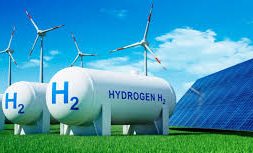
Hyundai, Tata Motors to supply 250 electric vehicles to EESL
- EESL will procure Tata’s Nexon at ₹14.86 lakh each, cheaper than the ex-showroom price of ₹14.99 lakh. Hyundai Kona, offering a higher range, will be procured at an 11% lower price of ₹21.36 lakh and will have a standard three-year warranty
NEW DELHI : Energy Efficiency Service Ltd, a joint venture between public sector units under ministry of Power, on Thursday announced procurement of 250 long range electric vehicles (EVs) from Hyundai Motor India Ltd and Tata Motors Ltd, to be used by government officials.
This is the second such tender floated by EESL.
South Korea’s Hyundai will supply 100 units of its electric sport utility vehicle Kona, while Tata Motors will supply 150 units of the electric variant of its popular compact SUV, Nexon.
In 2017, the company had decided to acquire 10,000 units of electric vehicles from Tata Motors and Mahindra and Mahindra Ltd (M&M) but couldn’t execute order due to lack of demand, charging stations, and range related issues of EVs.
EESL will procure Tata’s Nexon at ₹14.86 lakh each, which is around ₹13,000 cheaper than its ex-showroom price of ₹14.99 lakh. Hyundai Kona, which offers a higher range, will be procured at an 11% lower price of ₹21.36 lakh and with a standard three-year warranty. These electric vehicles will replace the existing fleet of petrol and diesel vehicles of the central and state governments, EESL stated in a statement.
The Narendra Modi-government has been trying to promote usage of electric vehicles to reduce pollution in major cities and dependence on crude oil. The union government has also been urging domestic vehicle manufacturers and startups to develop and manufacture electric vehicles and charging stations.
“A shift to EVs, facilitated by our e-mobility programme will reduce dependence on oil imports and promote power capacity addition in India. This will greatly enhance the energy security of the country and will also lead to reduction in green house gass emissions from the transport sector. Furthermore, we’re also working on rapid establishment of EV charging stations, which will give a fillip to the electric vehicle sales, going forward,” said Saurabh Kumar, executive vice chairperson, EESL.
In 2019, the Indian government had earmarked ₹10,000 crore to encourage development, manufacturing and usage of electric vehicles in the domestic market though the Faster Adoptions and Manufacturing of Electric Vehicles (FAME) scheme.
As part of the scheme, the Centre had decided to incentivise the purchase of 7,090 electric buses with an outlay of ₹3,545 crore, 20,000 hybrids with ₹26 crore, 35,000 four-wheelers with ₹525 crore and 500,000 three-wheelers with ₹2,500 crore.












